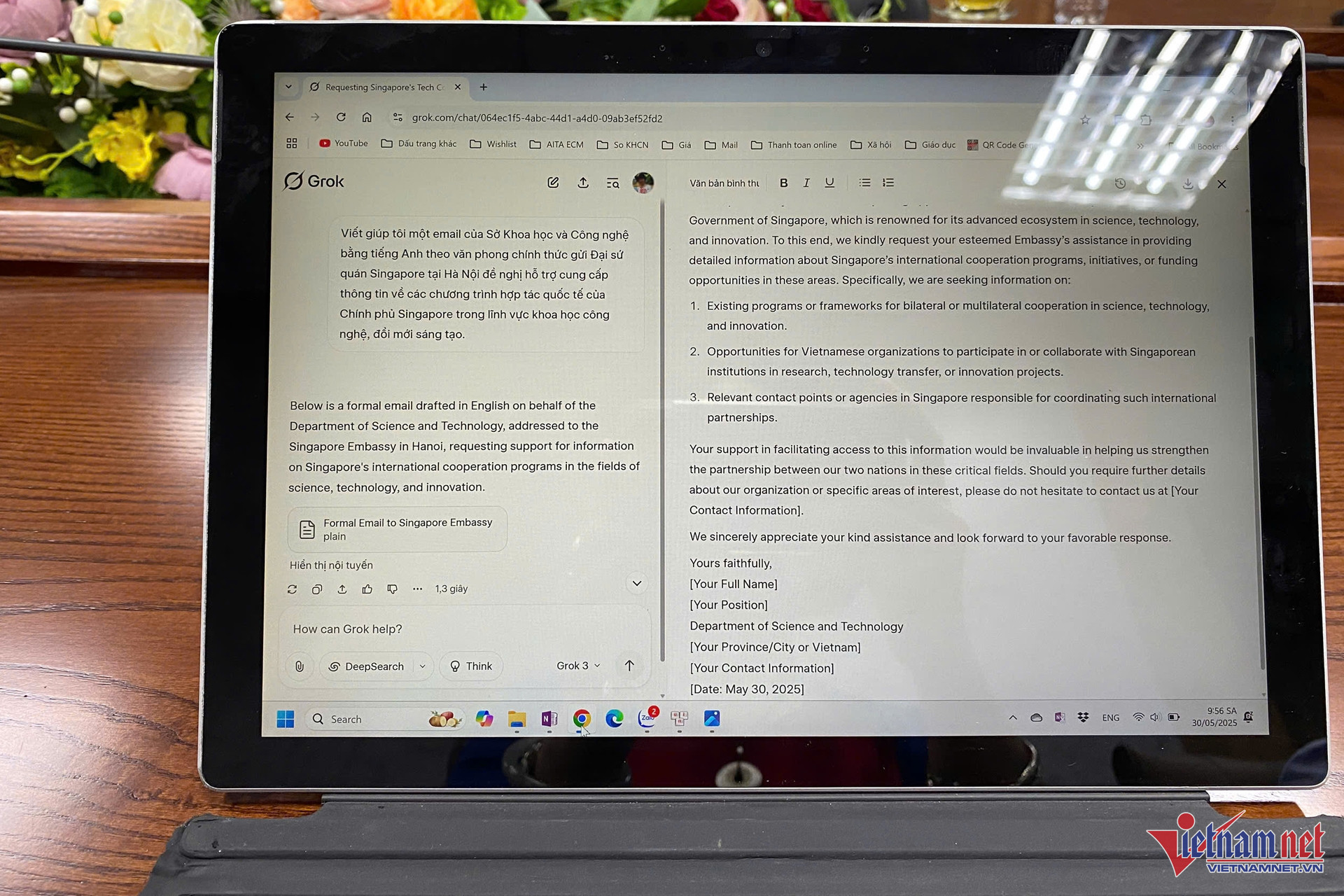
McDonald, a lecturer in Supply Chain and Logistics Management at RMIT University Vietnam, said that office workers increasingly rely on AI for drafting emails, designing presentations, and creating content, but few realize the environmental cost of each AI interaction.
“Many view AI as a magical technology existing in the cloud with no impact on the physical world. In reality, every AI command consumes resources from somewhere,” McDonald said.
He cited a University of California, Riverside study, which found that using generative AI to draft a 100-word email consumes about 519 ml of water for cooling data centers and 0.14 kWh of electricity—equivalent to powering 14 LED bulbs for an hour. While this may seem minor individually, the cumulative impact on a national scale is significant.
McDonald explained that using AI for complex financial analysis can be a valuable substitute, saving hours of manual work, but using AI to write simple greeting emails or LinkedIn posts is inefficient.
He estimated that if one of every 10 Vietnamese workers used AI daily for emails, the annual resource consumption could reach hundreds of thousand of cubic meters of water and enough electricity to power a small urban district.
Electricity demand
McDonald also noted that Vietnam’s electricity demand is projected to grow by 10-12 percent annually until 2030, with digital technologies accounting for a growing share. The operation of larger data centers in Vietnam will pose challenges, especially in the context of periodic power shortages, particularly in summer.
McDonald said sustainable digital development in which environmental costs are transparently acknowledged should be promoted. As Vietnam rapidly digitizes, understanding the real impact of virtual tools becomes increasingly critical.
His recommendations for Vietnamese users include reserving AI for complex or high-impact tasks where it adds significant value, manually drafting routine communications instead of relying on AI, avoiding AI for unnecessary content recreation, and carefully considering the use of AI image-generation features.
“The next time you consider asking AI to draft a simple email, remember it costs a bottle of water and enough electricity to light your workspace for hours,” McDonald said.
Van Anh